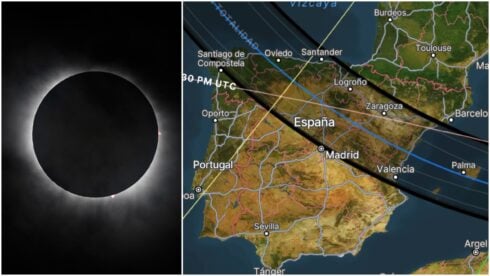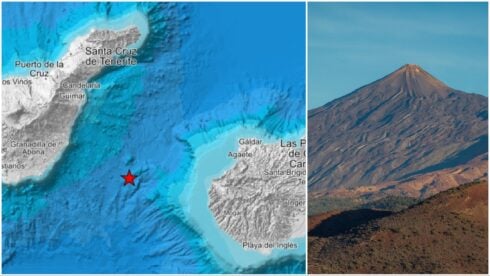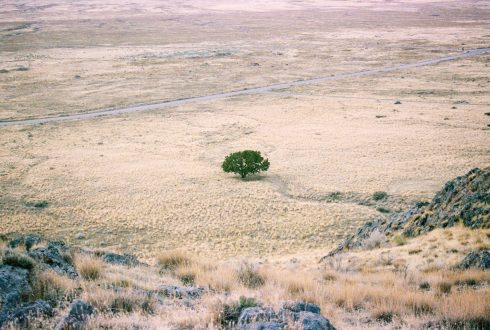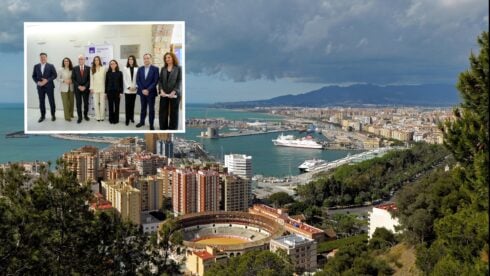By Karam Sleiman
CLIMATE change is affecting many countries around the world, and Europe is no exception. In particular, Spain will be one of the most heavily affected by rising temperatures, sea levels, disturbed rainfall patterns, heatwaves, and droughts.
All of these effects are attributed to climate change, and it is important to understand how they directly impact the living conditions in the country in order to act before the consequences are too severe and irreversible.
Desertification
This process entails land degradation from a variety of factors, most importantly climate “variations” and human responsibility. This aspect is particularly pressing, especially considering that Spain has had 20 percent of its territory desertified, and the number is actively increasing.

74 percent of the country is at risk of desertification. Much of this is directly attributed to the industrialized agriculture practices in the country, which Spain passed the National Action Program against Desertification in 2008, which looked to analyze and address the factors that contribute to the land degradation in the country.
This seemed to be an important step forward but, despite the name of the program, there was no direct action plan that effectively stopped desertification. Among EU countries, Spain runs the highest risk of becoming a desert by 2050.
The brighter side is that the Spanish Government did reconsider the damaging effects of desertification by addressing it in its recent climate and environmental emergency declaration. However, active changes are still needed. There are far too many severe consequences of land degradation, and it is important to realize where humans carry the burden, and it happens to lie in the country’s agriculture sector.
Agriculture and overuse of water
Agriculture is merely one of Spain’s main economic sectors, contributing around 3 percent of its total GDP in 2021. But the impact of Spain’s agrifood industry is significant. Spain is the biggest producer of olive oil in the world, accounting for 40 percent of worldwide production. The majority of farming is done in Andalusia, particularly in the Almeria province, known for its practice of intensive agriculture to meet the demand in Europe. The greenhouse complexes in Almeria generate 33,500 tons of plastic every year. While 85 percent of it is recycled, 5,000 tons are untreated.

These greenhouses require a large water supply, and it is primarily achieved through groundwater reserves. Approximately half of Spain’s groundwater is contaminated, and agriculture, farming and groundwater extraction are the main responsible actors for the country’s polluted reserves. Aquifers are essential in supplying water in cases of scarcity for an already scarce resource, and unsustainable farming has led to the exploitation of water at dangerous levels.
The overexploitation of water bodies also impacts the biodiversity of the area. The Santa Olalla lake in Doñana, Huelva, one of the biggest wetlands in Europe and UNESCO heritage site, has dried up again. This event brought to attention the illegal water extraction practices in Spain, which have not seemed to stop.
A report by WWF España in 2006 stated that over 3,600 hm3 of groundwater is extracted, and around 45% of all water is extracted illegally. Fifteen years later, the Court of Justice of the European Union ruled that Spain failed to address illegal water extractions. Instead of addressing the issue, the conservative Popular Party sought to increase irrigation in the area.
Water is a non-renewable resource, and human activity has greatly risked the depletion of water bodies. Although Spain built extensive dams to ensure the availability of water, they rely on rainfall to replenish its system. This has become far more challenging in recent years, where the effects of climate change have accelerated, disrupting rainfall patterns and raising temperatures.
Rising temperatures and heat
2020 was recorded at 1.7°C higher than the average preindustrial times, and if emissions continue, the country will experience increases of up to 5°C by 2100. Heatwaves as a result of rising temperatures bear many consequences, including ones Spain has already experienced.

The heatwave of 2022 in Spain alone killed at least 2,064 people as a result of the high temperatures. Droughts have directly affected the crops in Spain, and the disruption in production also entails a disruption in supply for all of Europe. Wildfires have dramatically increased, and Spain continues to run the risk of a devastating future if no drastic changes are made.
Goals and steps taken
Spain is a member of the United Nations Framework Convention on Climate Change, it has ratified the Kyoto Protocol, and has set up various national institutions to provide solutions for climate-related challenges. The parliament recently made a legal commitment to end fossil fuel production by 2042
Since the Paris Agreement, there have been many positive developments that Spain took in part with the European Union, particularly, setting a binding and legislative framework that ensures the seemingly ambitious goals are met. In the case of the energy sector, an increase in renewables and energy efficiency have been agreed , and these developments can already be seen in the country.
Renewable energy sources are 40 percent of the total electricity produced in 2022, and the number will continue to increase as the country shifts from fossil fuels. It has also removed the tax on solar power to encourage the use of solar energy in households. This is also made possible with the high public support of implementing strict measures to address climate change, and the public has actively engaged in tackling issues related to climate.
There are various international organizations with work in Spain, but local NGOs carry out significant efforts in a variety of ways. For instance, Ecologistas en Acción is a grassroots confederation with over 300 ecological groups in towns and cities, across all of Spain’s 17 regions. It organizes awareness campaigns, public and legal complaints against environmental damages.
ECODES, founded in 1992, works with people, organizations, and companies to discuss solutions to implement sustainable development and help reach the goals of the Paris Agreement.
And there are many more. Continuous pressure and direct action are the most effective solutions to combating climate change. Actively engaging and collectively organizing will ensure the safety of people, the environment and its vast biodiversity.
Click here to read more Environment News from The Olive Press.








